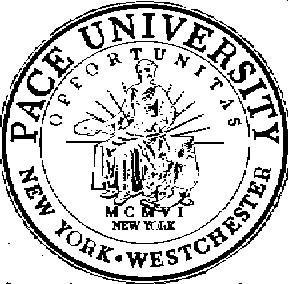2015 Pace International Criminal Court Moot
Pace Law School is proud to host the 15th annual Pace International Criminal Court Moot: Qualifying Round of the Americas on March 21-22, 2015 and welcome the participating teams. Preliminary rounds begin on Saturday, March 21, 2015 at 9:00 AM and the semi-final and final rounds will be held on Sunday, March 22, 2015 followed by a reception and award ceremony. The 2015 case presents the participating teams with the following issues:
- Whether Astafur is competent to make an Article 12(3) Declaration, triggering the jurisdiction of the Court over war crimes committed in Pantos, despite its lack of effective control over the territory of Pantos at the time of submission of the Declaration;
- Whether the Court has jurisdiction under the objective territorial principle over crimes committed by a Non-Party State (Braanos) via cyberspace that have an effect in a State (Astafur) that has lodged an Article 12(3) Declaration;
- Whether the widespread disruption of communications and electricity during a revolt against the government of Astafur via Distributed Denial of Service attack constitutes a war crime; and
- Whether there must be two different victims’ legal teams under separate Victims’ Legal Representatives in this case because one portion of the victims supported secession and the other favored remaining part of Astafur.
Are you interested in judging the competition and earn CLE credits? Contact the Director, Prof. Matthew Brotmann directly at PaceICCMC@gmail.com.
From the Director of ICC Moot, Prof. Matthew Brotmann
 Pace Law School has partnered Leiden University’s Grotius Center to become the official moot competition of the International Criminal Court. The upcoming competition to be held at Pace Law School is the qualifying round for the ICC Trial Competition to be held in The Hague, May, 2015. The top teams from each country competing in the Round of the Americas advance to the finals in The Hague, to compete against qualifying teams from other areas of the world. The Round of the Americas is open to all law students from the North, Central and South America as well as the Caribbean region. All other international students compete in the qualifying rounds at The Hague, unless requested otherwise.
Pace Law School has partnered Leiden University’s Grotius Center to become the official moot competition of the International Criminal Court. The upcoming competition to be held at Pace Law School is the qualifying round for the ICC Trial Competition to be held in The Hague, May, 2015. The top teams from each country competing in the Round of the Americas advance to the finals in The Hague, to compete against qualifying teams from other areas of the world. The Round of the Americas is open to all law students from the North, Central and South America as well as the Caribbean region. All other international students compete in the qualifying rounds at The Hague, unless requested otherwise.
Each team submits three memorials (briefs) requiring the students to research and develop arguments based on the three participants in ICC prosecutions, i.e., the Prosecution, the Defence and the Victims’ Advocates or Government Counsel, a new role developed for the first time for the International Criminal Court. These memorials are evaluated by legal scholars, and prizes are awarded for best brief, second place runner-up, and third place runner-up in each of the three categories of memorials. Perhaps the most exciting feature of the Moot, and one unique to this competition, is that each team of students participates in three rounds of oral arguments and has the opportunity of arguing all three perspectives: prosecutor, defence counsel and victims’ advocate or government counsel. Participating students all commented that they had never experienced a better way of learning the substantive and procedural law in a given area and fully developing the arguments of the parties than by having the opportunity to make those arguments from all three perspectives during the Moot.
The purpose of the Competition is to develop expertise in international criminal law, as practiced in the forum of the International Criminal Court. It is hoped that over time, the Competition will also educate a wider public, here and abroad, in the jurisdiction, procedures and substantive law that is utilized by the ICC in the prosecution of individuals charged with War Crimes, Crimes against Humanity, Genocide, and Crime of Aggression.
Keynote addressees and final round judges of past moots have included Amb. David Scheffer (former US Ambassador-at-Large for War Crimes Issues), Col. Linda Strite Murnane (ICTY), Judge Martin G. Karopkin (ECCC), Ms. Peggy Kuo (former Trial Attorney, ICTY), Prof. Benjamin Ferencz (former Prosecutor, Nuremburg), and Mr. Trevor Chimimba (UN). Mr. Roland Adjovi, former Senior Legal Officer of Trial Chamber III at the ICTR and Ms. Louise Doswald-Beck, Director of the University Centre for International Humanitarian Law (UCIHL) and former head of the Legal Division of the International Committee of the Red Cross, amongst others.
For further information, please see our website at www.law.pace.edu/icc or contact Prof. Matthew Brotmann at PaceICCMC@gmail.com.
